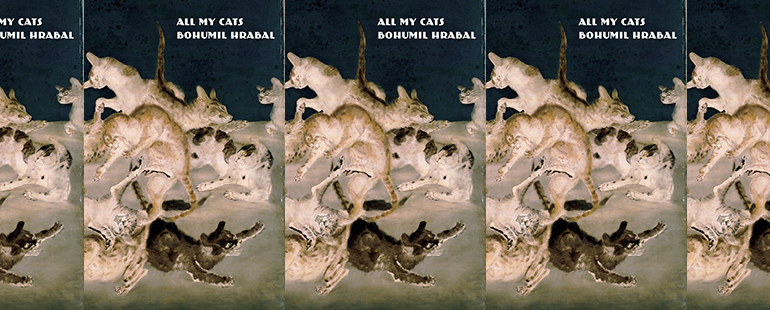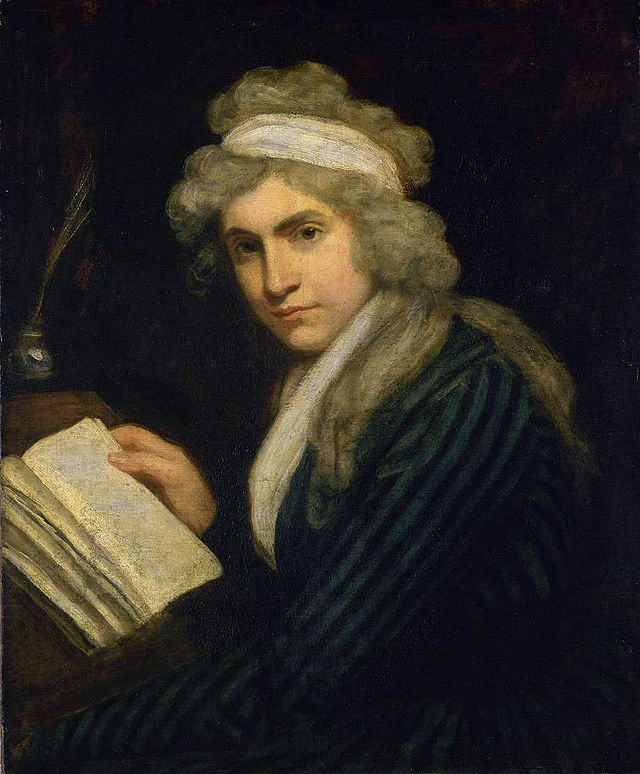All My Cats by Bohumil Hrabal

All My Cats
Bohumil Hrabal, translated by Paul Wilson
New Directions | November 26, 2019
Cats occupy a strange space in our cultural imagination. They have become the internet’s favorite animal, the subject of myriad memes and message boards. LOLCats is an online institution; videos of cats doing cute things regularly rack up millions of views (my favorite is a TikTok of an orange tabby dancing to “Mr. Sandman”). In an otherwise dismal online news cycle, cat content is a reliable source of blithe, harmless humor. Rather than read about the Syrian Civil War or crisis at the US–Mexico border, we can inundate ourselves with cat memes, LOLing until our eyes bleed.
Bohumil Hrabal’s posthumous memoir, All My Cats, however, is not of the LOL variety. Like much of his oeuvre, the memoir succeeds in making the mundane transcendent, turning a subject as potentially benign as pet ownership into a platform of interlocking drama and introspection. By examining the tender and troubling relationship he has with his cats, Hrabal tells a Dostoyevskian tale of grief and moral anguish, one that relentlessly considers the lifespan of guilt and endpoint of empathy.
Yet the memoir does not lead with these concepts; it opens quietly, even sweetly. Hrabal and his wife live in a cottage an hour east of Prague, where Hrabal spends his days writing, walking the countryside, and delighting in the company of his cats. His favorite cat is Blackie, who he has an intense relationship with; he nearly orgasms when they lock eyes: “I’d have to pick her up and for a moment I’d feel her go limp from the surge of feeling that flowed from me to her and back again, and I would groan with pleasure.” Hrabal does not shy away from such intimate (and occasionally erotic) descriptions of his cats. With no children—and the forgone ability to attract women—he deems himself their “father and lover.” He has such an attachment to them that during weekend trips to Prague, Hrabal sometimes fears that his cats will starve or freeze to death in his absence. In paranoiac fits, he cuts his trip short to ensure their safety.
Despite genuinely loving his cats, however, Hrabal and his wife have a problem: there are too many of them. Throughout the book, Hrabal’s wife repeatedly asks, “What are we going to do with all these cats?” The refrain is at first playful, then banal, then ominous. Blackie has a litter of kittens. More feral cats inhabit the property, one of whom also has a litter. Hrabal knows his wife is right. The cats have become a burden, and something must be done.
So, one morning, Hrabal stuffs six kittens in a mail bag, bashes them against a tree, and brings an axe butt down on their heads. Immediately, Hrabal feels the weight of what he’s done: “A feeling came over me that I knew would stay with me forever. . . . what I had done felt to me like murder.” Mortified, he buries the dead kittens, looking at them “lying there like images from Nazi mass graves.” In the following weeks, Hrabal is bereft with guilt, equating his murder of the kittens with recent historical traumas: the 1911 Italo-Turkish massacre, the Holocaust, the American killing of the South Vietnamese. During sleepless nights and slips of psychosis, Hrabal wonders if “all those who had taken part in wars and had killed millions of innocent people” feel the same guilt he feels for murdering his cats.
After executing another batch of cats, Hrabal starts to contemplate suicide. He recalls a time when a fortune-teller “predicted not only that I would become a writer, but that I would find myself in a situation that would drive me to hang myself on a willow tree beside a river.” Now, whenever he walks by a willow (which is oddly quite often), he yearns to fulfill his destiny. Yet it is unclear whether Hrabal’s suicidal impulses explicitly derive from murdering his cats or are connected to a more deep-seated suffering. Readers of his work will recognize suicidality as a recurrent theme seen throughout his novels (Closely Watched Trains, Too Loud a Solitude, and I Served the King of England all feature climactic moments involving suicide). Some even wonder if Hrabal’s own death in 1997—categorized as an accidental fall from a window—was intentional.
Although All My Cats does not read as allegorical or overly metaphorical, it does hint at broader sociopolitical and personal concerns that may have contributed to Hrabal’s deteriorating mental health. It is well-documented that after the 1968 Warsaw Pact, Hrabal’s books were banned in Czechoslovakia. In the late seventies he aligned himself with the state as a way to publish again, an arrangement many of Hrabal’s peers never forgave him for. Thus, in All My Cats, when Hrabal experiences “pangs of guilt and remorse and shame that will pursue me into eternity,” one wonders if this remorse pertains to things too painful to reckon with, if the cats are emblematic of a more complex form of guilt.
All My Cats is a terrific, necessary addition to Hrabal’s English-language translations. His intimate, spare style is an ideal vehicle to explore suffering’s three-dimensionality. Vulnerable and wise, All My Cats is a gorgeous memoir that subtly probes the depths of a fragile, troubled psyche.


